Artist Profile: Norman Lewis
From the Margin to the Art Market Center
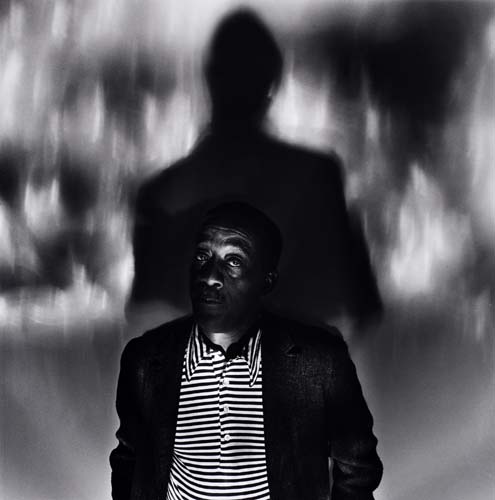
Sold Dember 13, 2007 for $1,320.
Born in Harlem in 1909, Norman Lewis developed as a painter as the New York Modern Art scene grew. He first studied art during the Harlem Renaissance under the sculptor Augusta Savage. Lewis became a painting instructor at the Harlem Community Art Center during the WPA, and painted social realist subjects during the Depression.
Norman Lewis in the 1950s
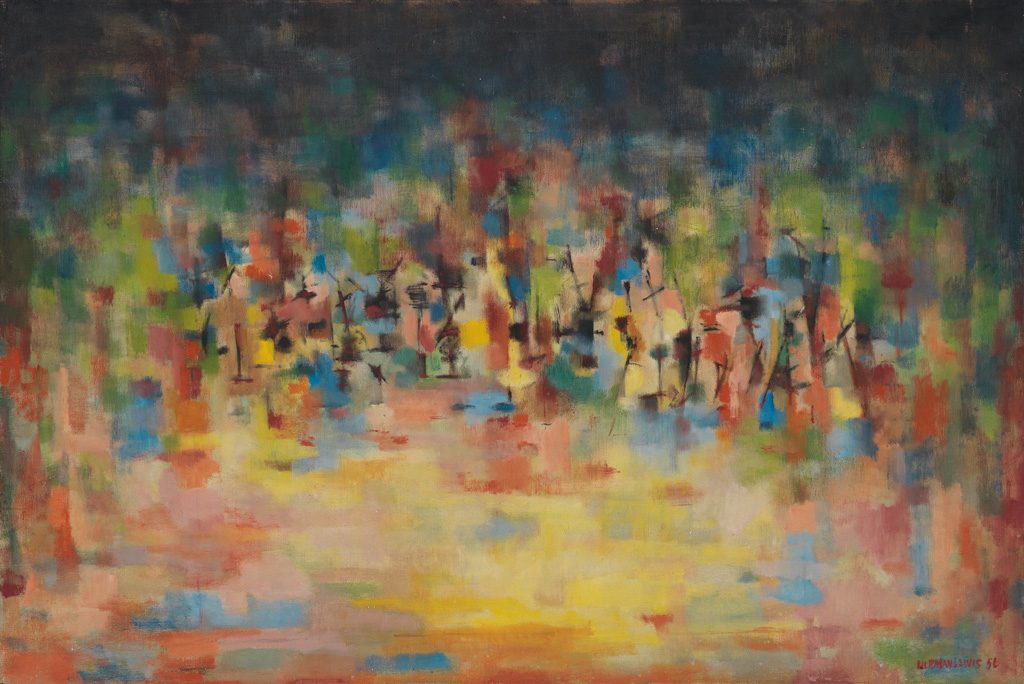
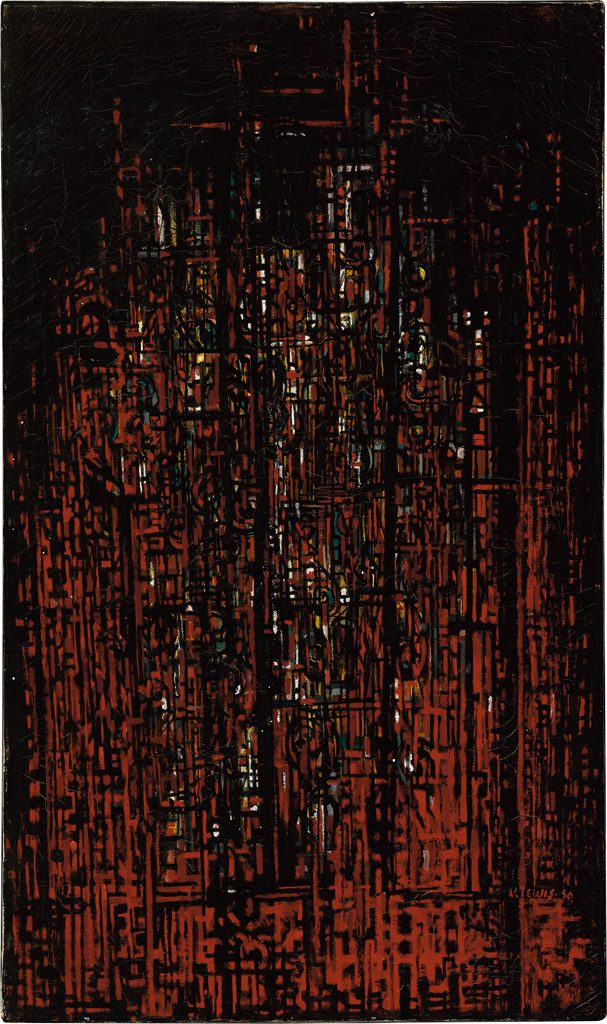
Sold April 2, 2015 for $317,000.
In 1956, Lewis was selected to represent the United States in American Artists Paint the City, an exhibition of 46 works by 36 artists in the American pavilion during the 28th Venice Biennale. Lewis joined fellow Willard Gallery artists Lyonel Feininger and Mark Tobey—he and Jacob Lawrence were the only African-American artists included, and his 1950 composition Cathedral, oil on canvas, was exhibited there. By 1957, Norman Lewis had gained national recognition, having had a series of well-received solo exhibitions at the Marian Willard Gallery, New York.
Norman Lewis’s stature was soon recognized with his inclusion in the 1951 Abstract Painting and Sculpture in America exhibition at the Museum of Modern Art. However, Lewis was conspicuously not included in the famous Irascibles photograph published in LIFE magazine that year despite his involvement with the group of Abstract Expressionists. In 1955, Lewis’s Migrating Birds, oil on canvas, 1954, won the Popular Prize at the Carnegie International Exhibition, making him the first African-American artist to receive the award.
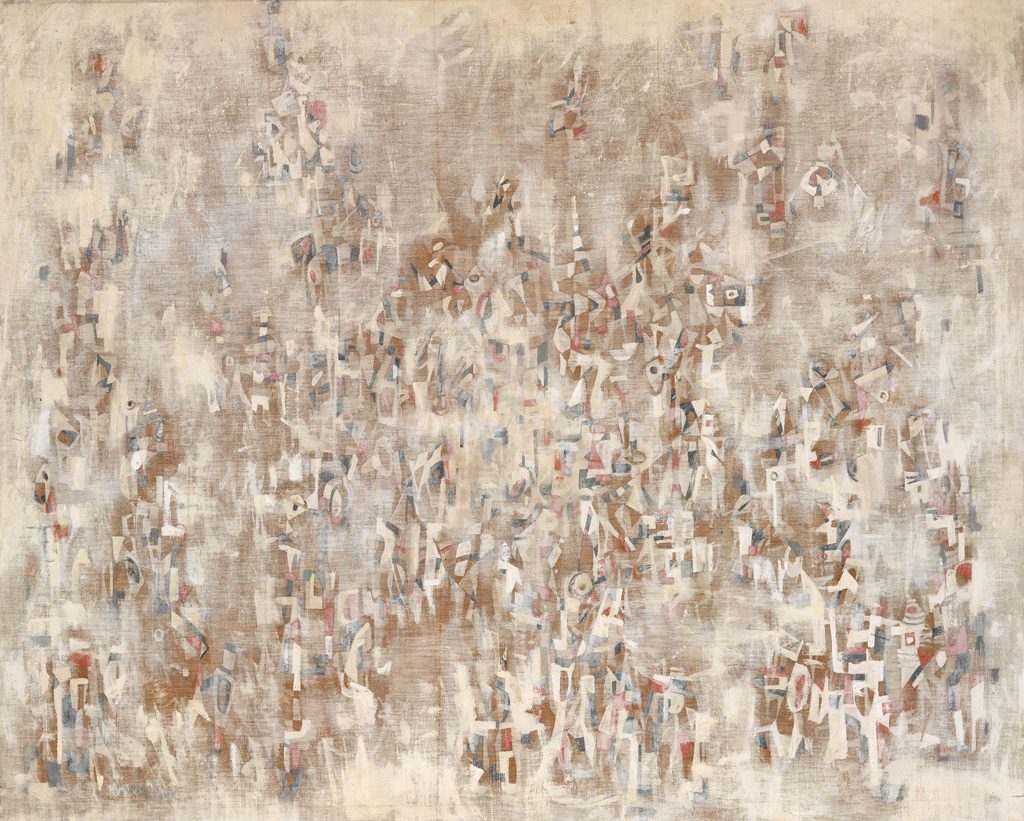
Sold December 15, 2015, for $965,000, a record for the artist.
A large oil on canvas dating to about 1958 was rediscovered in 2015. A masterful midcentury composition that had never been publicly exhibited, it revealed yet another dimension to his late-1950s body of abstraction—a series of larger canvases that he painted after a trip to Europe and North Africa in 1957. In this painting, Lewis continued his investigation of “ritual” calligraphic figures while moving further toward color field painting. Here, Lewis both reveals and obscures a large, dense composition of his figures with a limited palette by deftly balancing the warm beige color of the linen canvas with washes of a warm white. The figures, comprised of more modernist shapes, and less of his frenetic calligraphic line, confirm Lewis’s inspiration from his European experience.
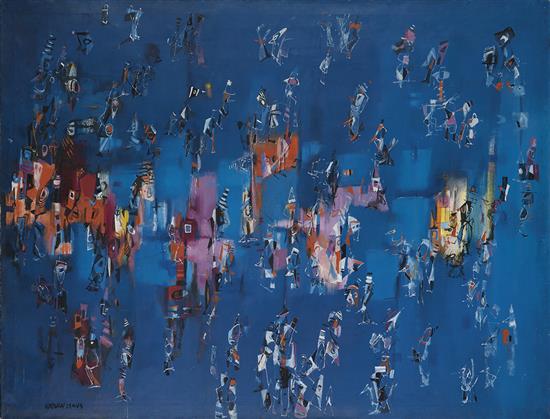
The muted field is a stark contrast to his intensely colored circa-1957 oil on canvas that sold at Swann in 2013. Similarly, this bold blue composition was also previously unrecorded and unexhibited.
Seachange Series
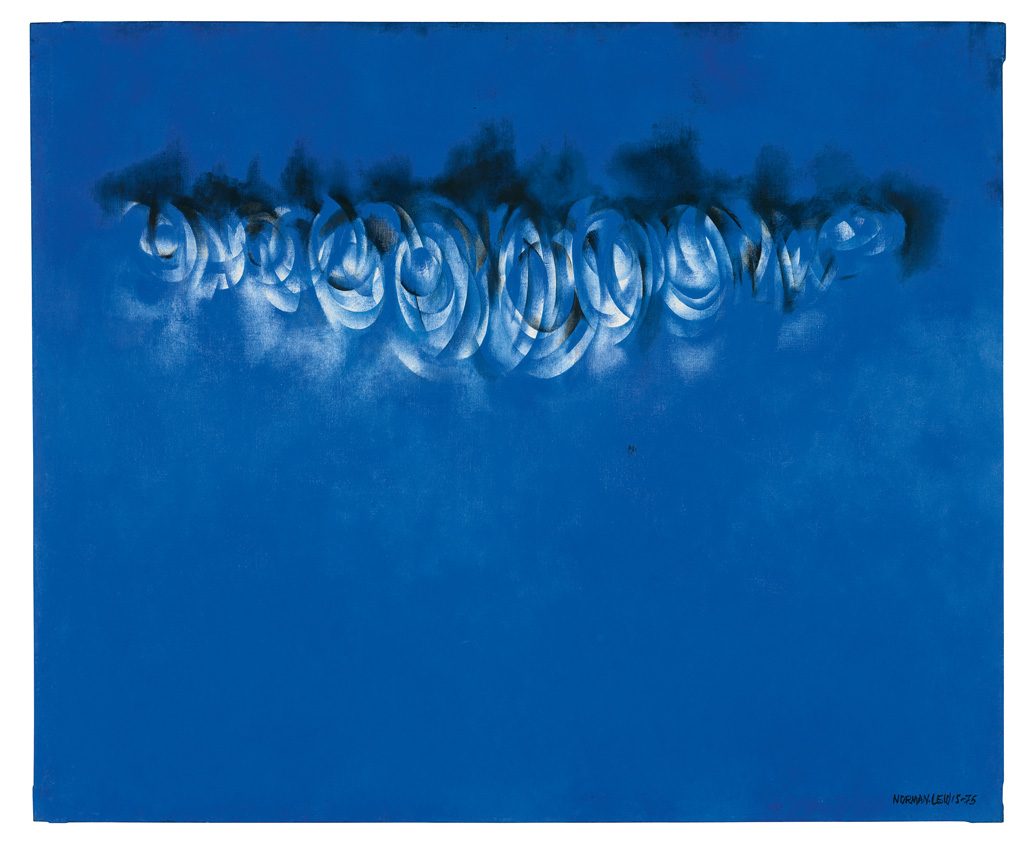
Block Island, oil on canvas, 1975, a radiant blue composition of curvilinear forms, was the first work on canvas from Norman Lewis’s Seachange series to come to auction, in 2016. Each piece in the series—the last major body of work by Lewis—is identifiable by undulating shapes surrounded by deep hues, drawing abstraction from the rhythms of nature. The paintings largely date from 1975-77, though the artist began making Seachange paintings as early as 1968, and continued to explore it throughout the 1970s, until his death in 1979.
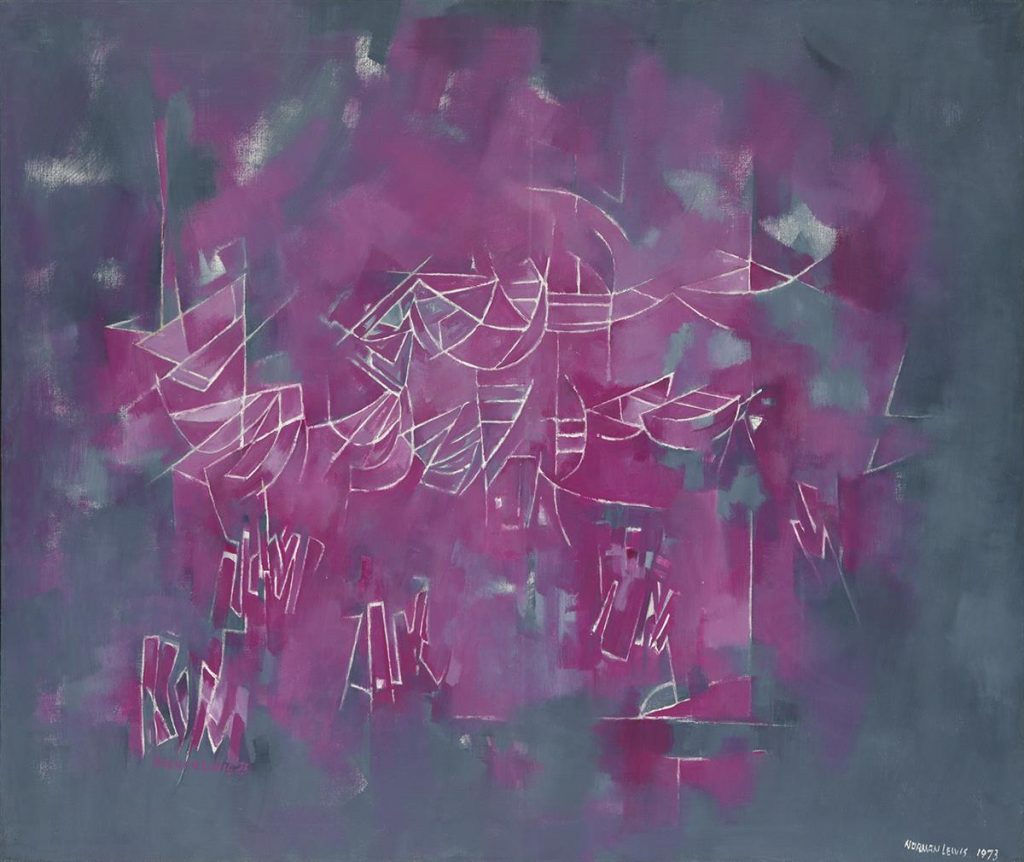
An earlier version of Block Island, oil on canvas, 1973-75, was sold in 2019. Lewis clearly revisited the canvas as it bears a pair of signatures and dates of 1973 and 1975. The work initially predates his Seachange series, but it is clear that Lewis returned to the painting as he began to fully explore the more abstract compositions of vibrating, concentric circles that began to define the series in 1975.
Works on Paper
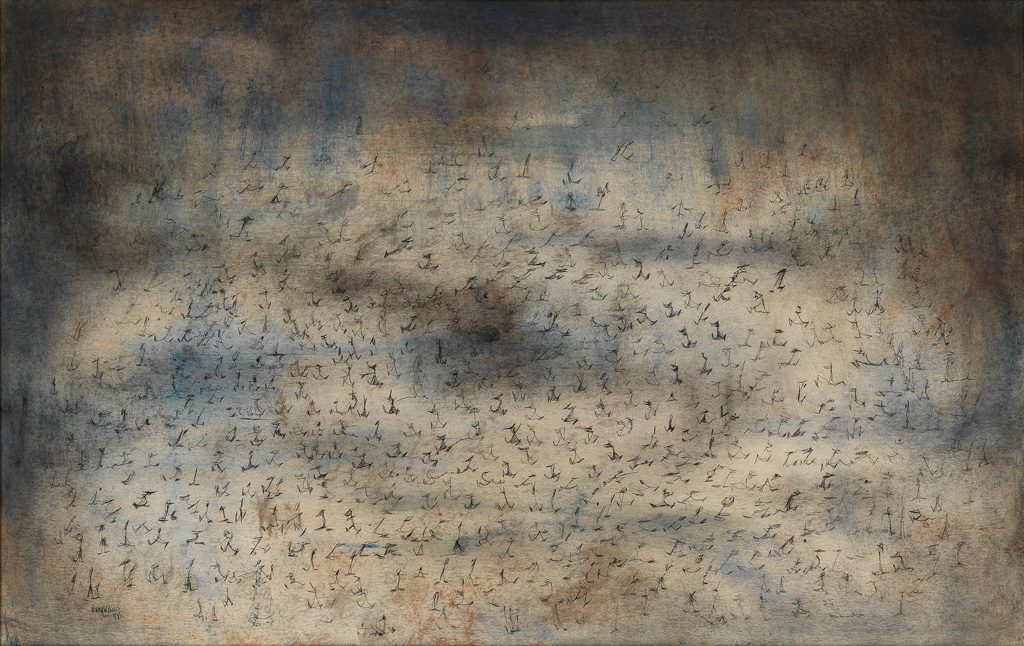
In addition to Lewis’s canvas paintings, the artist also created a number of paintings on paper throughout his career—the largest measuring 26″ x 40″. Swann has offered a number of these large works, including Processional Figure Composition, 1956, which sold in April 2016 for $87,500. The oil, pen and ink work on paper is a superb example of the artist’s evolving calligraphy of “little figures” in the mid-1950s. In February 2010 Swann sold Midnight Carnaval, 1960, for $55,200. The watercolor, pen and ink drawing is a culmination of Lewis’s inventive calligraphy of small dancing figures that can be seen in Processional Figure Composition and his other works on paper through the 1950s.
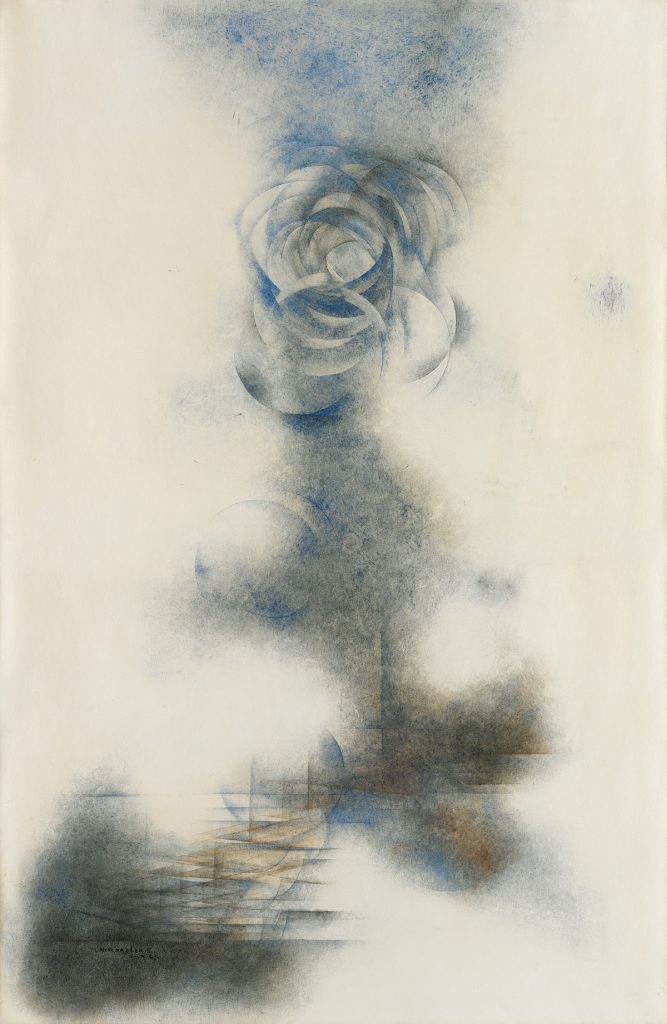
Sold April 4, 2019 for $62,500.
Blue Moon, 1960, which sold in April 2019 for $62,500, is an elegant oil on paper and a significant example of his mid-career works on paper. Created on the largest size paper that Lewis would use, the vertical composition is a soaring abstraction based on the phases of the moon. Nocturnal subjects can be seen repeated throughout the artist’s career.
Lewis went on to receive a grant from the Mark Rothko Foundation and fellowships from the National Endowment for the Arts and the John Simon Guggenheim Memorial Foundation. His first comprehensive museum retrospective, Procession: The Art of Norman Lewis, traveled across America in late 2015 through early 2017. His works are in the collections of The Museum of Modern Art, Whitney Museum of American Art, Smithsonian American Art Museum and Museum of Fine Art, Boston among many others.

















![Grace Meschery-McCormack shares about two copies of Fernando de Rojas’s ‘La Célestine,’ including a limited edition copy illustrated by Pablo Picasso.
At auction April 22. Learn more about the works at the link in our bio.
#Rarebooks #rarebookdealer #antiquarianbooks #auctions
_______________________________________
Music Credit:
Schubert - Piano Quintet in A major ‘The Trout’, D. 667 - IV. Andantino – Allegretto
Music provided by Classical Music Copyright Free on Youtube [https://tinyurl.com/visit-cmcf]
Watch: • Schubert - Piano Quintet in A major ‘...]](https://scontent-iad3-1.cdninstagram.com/v/t51.75761-15/491443494_18499096345036585_5935932878956098058_n.jpg?stp=dst-jpg_e35_tt6&_nc_cat=107&ccb=7-5&_nc_sid=18de74&_nc_ohc=QlZg0o3Vx4oQ7kNvwHlPDYS&_nc_oc=Admkx5CH3-5gNl9kFtE07uGBWzC1TrU8LutoXTk30m77fiWC0m2_oIjIUSQBbJE8mA8&_nc_zt=23&_nc_ht=scontent-iad3-1.cdninstagram.com&edm=AM6HXa8EAAAA&_nc_gid=Pe1umN91MEXpkwcZIAoyzA&oh=00_AfL0aLte8jNzcTguOVsdcdqJNkw1tTNFwy_v2TCIwQ11Pw&oe=6828BE91)
